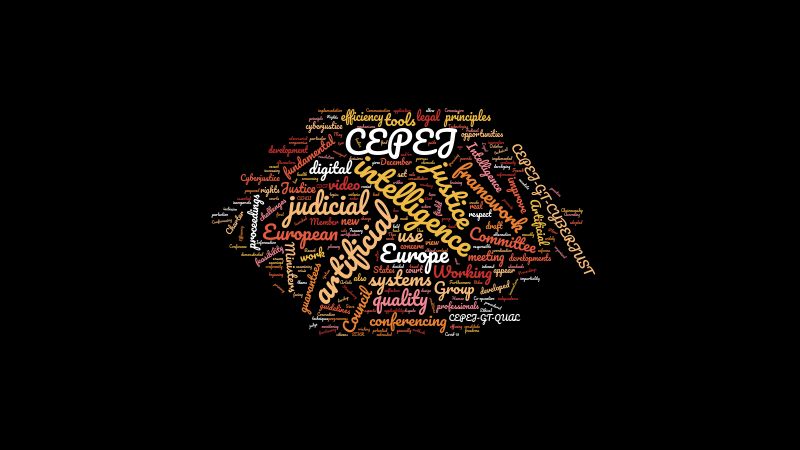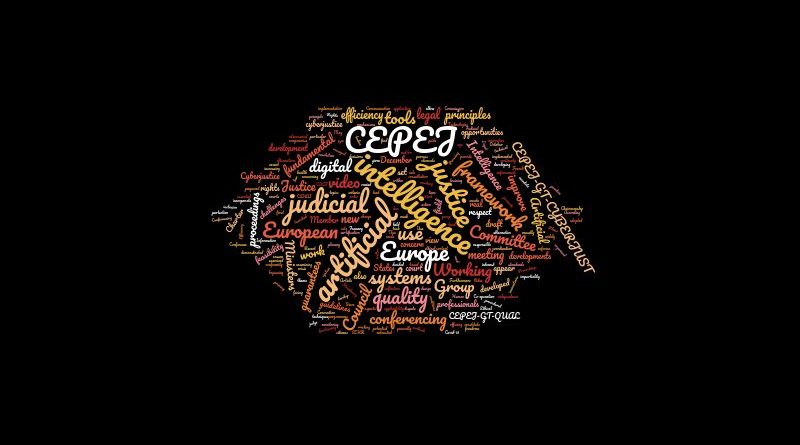How Europe Plans to Use Video Conferencing in Judicial Proceedings

Recent developments in digital justice appear as real opportunities to improve the quality and efficiency of justice.
Since the beginning of the Covid-19 health crisis, the courts have had to find alternatives to allow the continuity of the functioning of justice, and in this framework, the use of video conferencing has been widely developed.
The Working Group on Cyberjustice and Artificial Intelligence (CEPEJ-GT-CYBERJUST) examined, at its meeting of 7 May 2021, draft guidelines on the use of video conferencing in judicial proceedings.
The mandate has been given by the CEPEJ (Council of Europe European Commission for the Efficiency of Justice) in conformity with the standards of Article 6 of the European Convention on Human Rights (ECHR).
The draft guidelines incorporate procedural and technical aspects and provide for a system of monitoring the conditions of implementation of video conferencing in line with judicial practice.
According to CEPEJ, recent developments in digital justice appear as real opportunities to improve the quality and efficiency of justice. At the same time, they constitute new challenges for the respect of the fundamental principles of the trial, essential guarantees of judicial systems, such as the primacy of the rule of law, the independence and impartiality of the judge, the principle of adversarial proceedings or the protection of fundamental freedoms.
A Conference was organised in the framework of the French Chairmanship of the Committee of Ministers of the Council of Europe in October 2019 on the theme “Justice in Europe facing the challenges of the digital age.”
It demonstrated the interest of the Council of Europe and the Ministers of Justice of its Member States in the increasing inclusion of cyberjustice and artificial intelligence techniques in the reforms of judicial systems and the concern to ensure that these innovations do not compromise the rights and guarantees of citizens.
In December 2018, the CEPEJ adopted the first European Ethical Charter on the use of artificial intelligence in judicial systems. This innovative text, prepared by the CEPEJ Working Group on quality of justice (CEPEJ-GT-QUAL), sets out principles to guide the development of artificial intelligence tools in European judicial systems.
In January 2020, the CEPEJ also launched a consultation on the feasibility of a certification process, within the framework of the applicability of this Charter. This work is also managed by the CEPEJ-GT-QUAL.
Pursuing its action to promote a responsible use of artificial intelligence, based on the respect of fundamental rights and ethical principles and meeting the needs of legal professionals, the CEPEJ decided, at its 33rd plenary meeting, held in Strasbourg in December 2019, to set up a new working group in charge of further reflection on the matter.
Thus the Working Group on Cyberjustice and Artificial Intelligence (CEPEJ-GT-CYBERJUST) is entrusted by the CEPEJ with the task of “developing tools with a view to offering a framework and guarantees to Member States and legal professionals wishing to create or use Information and Communication Technologies and/or artificial intelligence mechanisms in judicial systems in order to improve the efficiency and quality of justice”.
This work should be implemented in coordination with the work of other Council of Europe bodies in this field, in particular the European Committee on Legal Co-operation (CDCJ) and the Ad hoc Committee on Artificial Intelligence (CAHAI), recently set up by the Committee of Ministers, with a view to examining much more generally the feasibility and potential elements of a legal framework for the development, design and application of artificial intelligence.
The tools to be developed by this new Working Group should concern topics as varied as quality criteria for video conferencing, artificial intelligence used in alternative methods of dispute resolution or enforcement of court decisions or court proceedings in a digital context.
Furthermore, the CEPEJ-GT-CYBERJUST should develop training programmes concerning CEPEJ tools in the field of cyberjustice and artificial intelligence.




